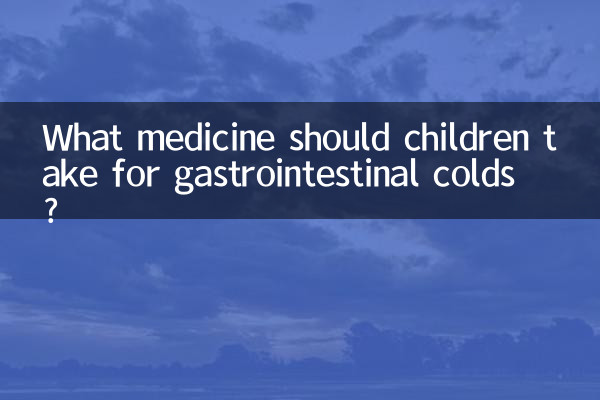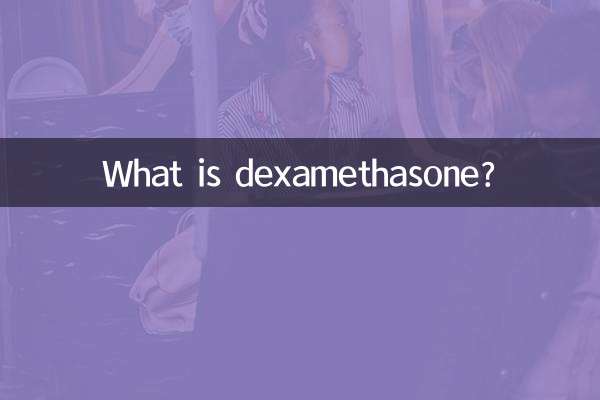What medicine should children take for gastrointestinal colds?
Recently, stomach flu in young children has become a hot topic of concern to parents. As the seasons change and the virus spreads, many young children develop diarrhea, vomiting, fever and other symptoms, making parents anxious. This article will combine the popular discussions and medical advice on the Internet in the past 10 days to provide parents with scientific medication guidelines and nursing suggestions.
1. Common Symptoms of Stomach Flu

Stomach cold (viral gastroenteritis) in young children mainly presents with the following symptoms:
| Symptoms | frequency of occurrence | duration |
|---|---|---|
| Diarrhea | More than 90% | 3-7 days |
| vomiting | 70%-80% | 1-3 days |
| Fever | About 60% | 2-4 days |
| abdominal pain | 50%-60% | 2-5 days |
| Loss of appetite | More than 80% | 3-5 days |
2. Recommendations for commonly used drugs
Based on pediatrician recommendations and clinical guidelines, the following medications may be used to relieve stomach cold symptoms in young children:
| drug type | Representative medicine | Applicable symptoms | Things to note |
|---|---|---|---|
| oral rehydration salts | WHO standard ORS | Dehydration prevention | Dilute according to instructions, small amounts several times |
| Probiotics | Bifidobacterium, Lactobacillus | Regulate intestinal flora | Avoid taking with antibiotics |
| antiemetics | Domperidone (as directed by your doctor) | severe vomiting | Available for ages 2 and up |
| antipyretics | Acetaminophen, ibuprofen | Fever and discomfort | Take dose according to body weight |
| Montmorillonite powder | Smecta | acute diarrhea | 2 hours apart from other medications |
3. Dietary conditioning suggestions
Along with drug treatment, dietary conditioning is equally important:
| stage | Recommended food | avoid food |
|---|---|---|
| Acute phase (frequent vomiting) | Rice soup, light salt water | Dairy products, high-sugar drinks |
| Remission period (vomiting stops) | Porridge, noodles, apple puree | Greasy, high-fiber foods |
| recovery period | Steamed eggs, steamed buns, ripe bananas | Raw, cold and spicy food |
4. When Do You Need Medical Treatment?
You should seek medical attention immediately if:
| red flag | Specific performance |
|---|---|
| severe dehydration | No urine for 6 hours, sunken eye sockets, no tears when crying |
| persistent high fever | Body temperature >39℃ for more than 24 hours |
| bloody stool | Bloody or tarry stool |
| Frequent vomiting | Unable to eat or drink for more than 8 hours |
| listless | Drowsiness, unresponsiveness |
5. Preventive measures
Prevention is better than cure, parents should pay attention to:
1.wash hands frequently: Wash your hands with soap before eating, after using the toilet, and after returning from going out.
2.Food hygiene: Food is fully heated and tableware is disinfected regularly
3.avoid contact: Reduce going to crowded public places
4.Get vaccinated: Rotavirus vaccine may be considered (vaccinated before 6 months of age)
5.Enhance immunity: Ensure adequate sleep and balanced nutrition
6. Common Misunderstandings
| Misunderstanding | scientific explanation |
|---|---|
| Take antidiarrheal medicine immediately | May hinder virus excretion and prolong the course of the disease |
| Drink plenty of boiled water | Oral rehydration salts containing electrolytes should be supplemented |
| use antibiotics | Stomach colds are mostly viral infections and antibiotics are not effective |
| fasting | Eat small and frequent meals to ensure nutritional intake |
Summary:
Gastrointestinal colds in young children are mostly self-limiting diseases, and the main treatment principles are to prevent dehydration and treat symptoms. Parents should stay calm, use medication scientifically, and closely observe changes in the condition. If symptoms worsen or danger signs appear, seek medical attention promptly. At the same time, do daily preventive work to reduce the risk of infection.

check the details

check the details